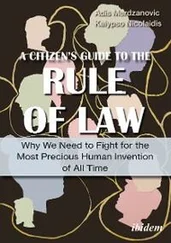Gorby tried to play catch-up as the countries of the USSR began to willy-nilly declare independence, and he opened up the government to a multiparty system in February 1990. The Lithuanians, whose country had been annexed by the Soviets in the secret protocols to the Hitler-Stalin nonaggression pact during World War II, declared that November 7, the anniversary of the Bolshevik Revolution, would no longer be a national holiday. This was tantamount to giving the middle finger to the Soviet leaders, and Gorby now found his sense of propriety insulted. On January 12, 1991, the Soviets responded by attacking the Vilnius TV tower, led by black-bereted special troops with the James Bond–like name of OMON from their Interior Ministry. Thirteen Lithuanians died. Dmitri Yazov, the Soviet minister of defense and a coupster-in-training, accused the Lithuanians of provoking the army and on his own initiative attacked them. Gorby did nothing to punish Yazov. In March the Lithuanians proclaimed their independence. What had started as an attempt by Gorby to reform the Soviet Union had turned into the disintegration of the empire.
Gorby continued to work on his fantastical plan to rearrange the economy, called the “500-Day Plan,” a command-economy answer to creating capitalism. It contained such gems of fantasy central planning as gutting the military-industrial complex, which happened to be the backbone of the economy and the last refuge of the hard-liners. On October 15, 1990, Gorby received the Nobel Peace Prize. With his plan certain to push the hard-liners over the edge, Gorby made the only move that would keep him in power: he withdrew his support for the obtuse plan. Walking a tight line between true reformers like Yeltsin and the hard-line party men, Gorbachev had little wiggle room. These men were the princes of the Soviet otherworld, marching on inexorably, eyes fixed on the hazy, triumphant past, vacationing on the Black Sea, and enjoying the dubious fruits of the powerful Soviet oligarchs. They had climbed to the top of the gigantic criminal structure by constructing a nonstop barrage of bland, self-serving rhetoric that obfuscated the murderous, incompetent, and criminal actions of the government. They saw no reason to relinquish their grip on a world that gave them meaning.
The reformers saw clearly that Gorby was addicted to the insane logic of Soviet rule in which anything becomes permissible in order to stay in power. Gorby’s faith in socialism led him to press on with those reforms that could end only in the dissolution of the empire. The danger was whether the streets would run with blood.
In June 1991 Gorby was informed by American authorities that there was a plot to oust him, which involved his top ministers. Gorby’s response was to give the coup-minded ministers a tongue-lashing.
He pressed on, seemingly contemptuous of the dangers. He dotted the i’s on the new Union Treaty that would shepherd the former Soviet Union into an absurd federation of independent republics with a single president and army. In a way, the disintegration of the Soviet Union had already begun as each republic had attained a certain autonomy. And when Yeltsin became president of the Russian republic in 1990 and left the Communist Party, he became Gorby’s most significant opponent. On the eve of signing this treaty, which the hard-liners feared would radically reshape their world without them at the center, the coupsters made their move against Gorby.
The coupsters had everything going for them. At their fingertips was the institutional knowledge of seventy years of maestro performances of ruthlessly crushing any and all opposition with brutal, organized efficiency. It was the one job that their predecessors had always aced, staying in power by any means necessary. It was truly the fruit of the system. But the Soviet history of staggering incompetence had finally caught up to them.
WHAT HAPPENED: OPERATION “COUP WHO?”
Gorby, desperate to pull off his balancing act, surrounded himself with his betrayers. In August he took a vacation to his luxurious villa in the Crimea. He had perfectly isolated himself at a time when he was about to destroy the power base of the hard-liners he was trying to coax toward democracy.
The coupsters finally made their decision to get rid of Gorby while meeting at a KGB safe house in a scene more like a drunken picnic than a devious plotters’ den. They had met before many times to grouse about their Gorby problems but now, with the Union Treaty to be signed the next day, it was time to act and for many of them to start drinking. They arranged to “handle” Gorby, but like the central planning for the glorious Communist future, which never required much doing, everything else was left hazy and vague.
The coup, in official Soviet tradition, started with a lie. The official Soviet News Agency TASS reported on the morning of August 19, 1991, that Gorbachev had resigned due to an undisclosed illness and that a “state of emergency” committee had assumed power. In fact, Gorby had been confined to his luxury dacha quite easily, as one of the coupsters, Boldin, was his chief of staff. Another coupster told him, according to Gorby, “we’ll do all the dirty work for you,” hoping perhaps that Gorby would acquiesce and join them in overthrowing himself. He told them to go to hell. The hard-liners had finally acted, but no one had thought to neutralize Boris Yeltsin. Perhaps the coupsters were confused because Yeltsin seemed to be Gorby’s enemy, and Gorby was their enemy. They didn’t realize that the enemy of your enemy can also be your enemy. They also didn’t realize how many enemies they actually had. Within hours of the announcement that Gorby had been replaced, Yeltsin evaded the feeble attempt to trap him and made it to the Russian “White House,” the seat of power of the Russian republic, where he climbed atop a tank and boldly denounced the coup. Then he disappeared inside to organize the defense.
Down the road at the Kremlin, Vice President Yaneyev had to be bullied into signing the emergency decree giving him power by the rest of the emergency committee. He was a heavy drinker and seemed to be drunk that morning, which perhaps explained his surprising reluctance to sign a decree giving himself massive powers with a stroke of the pen, a chance that most dictators would give up a corner of their empire to win.
At the Russian White House, in the early afternoon, the first human chains were created as protesters grasped hands and faced down a column of small tanks clanking down one of the main avenues. People linked arms and barred the way. The tanks ground to a halt, obviously awaiting orders, as the hatches popped open and the young faces of the drivers appeared. Furious arguments ensued as angry citizens argued with the drivers, who seemed lackadaisical and inclined to neither argue nor attack.
The big battle tanks of the elite Taman Guard rolled in by the afternoon. They had been sent to attack the White House, but led by a general more sympathetic to Gorby than the coupsters; they swung their turrets around and positioned themselves to defend the White House instead. The huge tanks made a fearsome sound when they moved, chewing up the pavement, spewing exhaust, and lurching like bull elephants. The tank drivers, wearing padded leather helmets that made them look like 1920s footballers, chatted and smoked as people leisurely began to gather outside the building.
ALEKSANDR YAKOVLEV
World War II veteran and one-time Russian ambassador to Canada, Yakovlev was plucked from this faraway post and made into Gorbachev’s intellectual sidekick and chief advisor. Together they tried to reform the Soviet Union in order to save it. His full-throated promotion of democratic reform earned him the impressively cross-cultural nickname of “The Godfather of Glasnost.” But as Gorby placated the hard-liners, the two friends parted ways, leading Yakovlev to bolt from the Communist Party just before the coup after warning Gorby that trouble was brewing. Later, they kissed and made up, and Yakovlev continued to push for democracy and press freedoms in Russia. His achievements were so widely recognized that on his death in 2005 politicians across the political spectrum in Russia praised him for pushing the country forward.
Читать дальше












